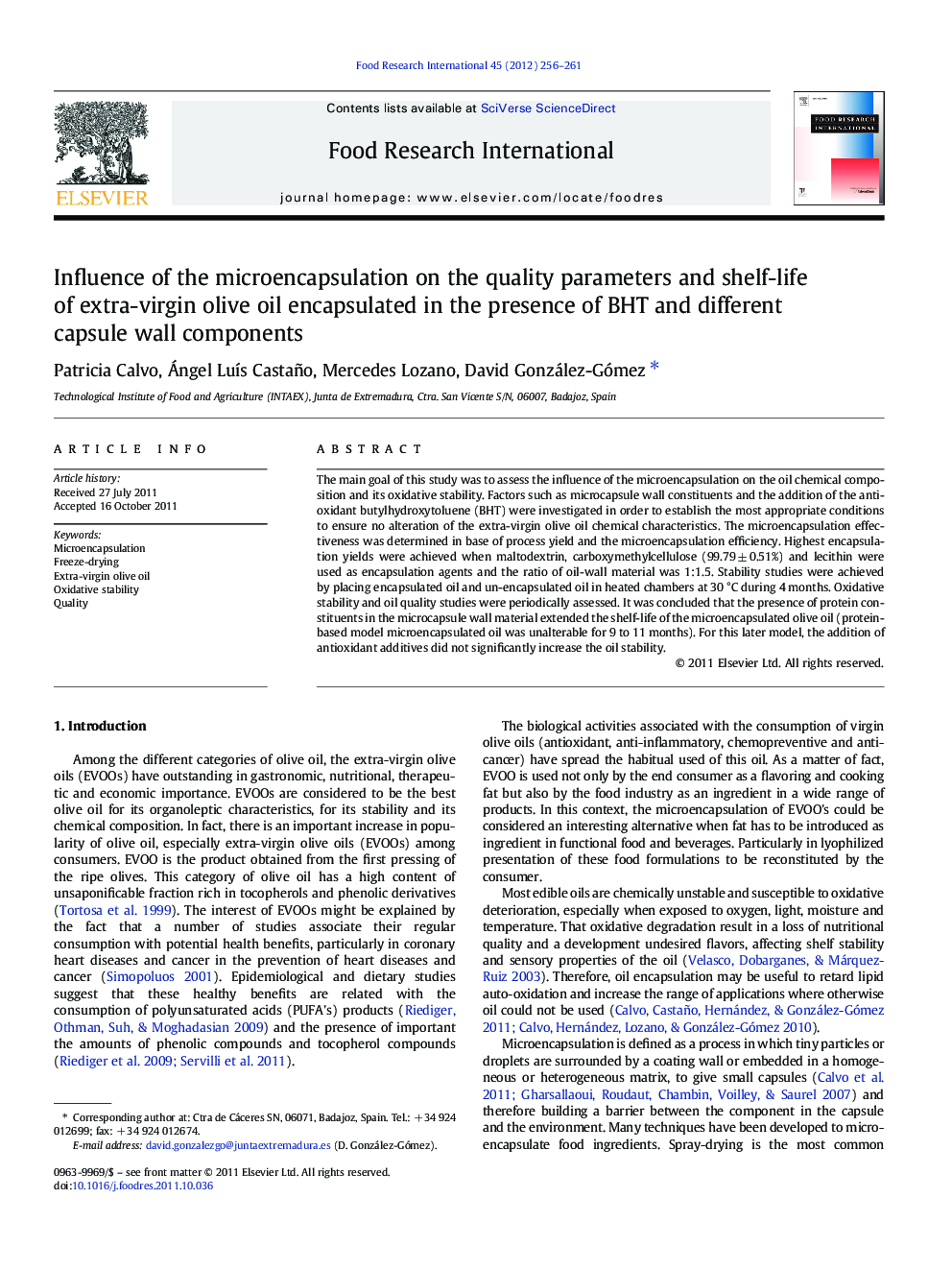| Article ID | Journal | Published Year | Pages | File Type |
|---|---|---|---|---|
| 6399396 | Food Research International | 2012 | 6 Pages |
The main goal of this study was to assess the influence of the microencapsulation on the oil chemical composition and its oxidative stability. Factors such as microcapsule wall constituents and the addition of the antioxidant butylhydroxytoluene (BHT) were investigated in order to establish the most appropriate conditions to ensure no alteration of the extra-virgin olive oil chemical characteristics. The microencapsulation effectiveness was determined in base of process yield and the microencapsulation efficiency. Highest encapsulation yields were achieved when maltodextrin, carboxymethylcellulose (99.79 ± 0.51%) and lecithin were used as encapsulation agents and the ratio of oil-wall material was 1:1.5. Stability studies were achieved by placing encapsulated oil and un-encapsulated oil in heated chambers at 30 °C during 4 months. Oxidative stability and oil quality studies were periodically assessed. It was concluded that the presence of protein constituents in the microcapsule wall material extended the shelf-life of the microencapsulated olive oil (protein-based model microencapsulated oil was unalterable for 9 to 11 months). For this later model, the addition of antioxidant additives did not significantly increase the oil stability.
⺠Protein-based microcapsules protected the composition of EVOs. ⺠Protein-based microcapsules protected the oxidative stability of EVOs. ⺠Carbohydrate-based microcapsules had higher microencapsulation efficiency. ⺠The presence of antioxidants does not improve oil stability.
